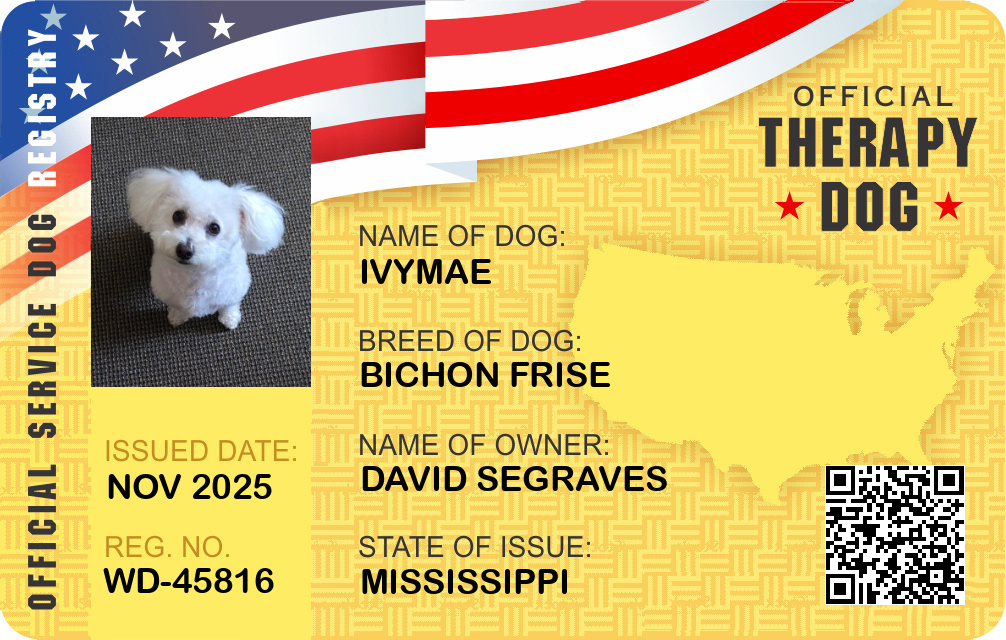Florida Emotional Support Animal Laws

Overview of ESAs and Legal Definitions in Florida
What is an Emotional Support Animal?
An Emotional Support Animal (ESA) provides comfort, companionship, and emotional relief to individuals diagnosed with emotional or mental health conditions. Unlike service animals, ESAs do not need specialized training to perform specific tasks directly related to a person’s disability. The primary function of an ESA is to offer emotional support through their companionship, which can alleviate symptoms of mental health disorders such as anxiety, depression, and PTSD. In Florida, ESAs can be any animal species, not just dogs or cats, as long as they contribute positively to their owner's well-being.
How ESAs Differ from Service Animals
While both ESAs and service animals offer support to individuals with disabilities, they differ significantly in purpose and legal status. Service animals, typically dogs, are trained specifically to perform tasks for individuals with physical, sensory, psychiatric, intellectual, or other mental disabilities. These tasks might include guiding a visually impaired person, alerting individuals who are hearing impaired, or providing physical support. In contrast, ESAs do not require specific training. The critical distinction is that service animals are granted broader public access rights under the Americans with Disabilities Act (ADA), whereas ESAs primarily have rights in housing under the Fair Housing Act (FHA).
Key Federal Laws Affecting ESAs
#### Fair Housing Act (FHA) The FHA prevents discrimination in housing against individuals with disabilities and requires housing providers to make reasonable accommodations for ESAs, viewing them similarly to service dogs.
#### Air Carrier Access Act (ACAA) Previously, the ACAA required airlines to accommodate ESAs, but regulatory changes now classify ESAs as pets rather than service animals. Airlines are no longer mandated to permit ESAs to fly free of charge.
State-Specific ESA Laws in Florida
Housing Rights and Responsibilities
Under both federal and Florida state laws, individuals with ESAs are entitled to reasonable accommodations in housing. The FHA and Florida’s Statute Section 760.27 necessitate housing providers to allow ESAs even in "no pets" policies. Landlords must not charge a fee for an ESA, though they can require documentation from a licensed mental health professional indicating the need for the animal. Tenants are still responsible for any damage caused by the animal and must ensure the pet does not pose a threat to others.
Public Access and Accommodation
Unlike service animals, ESAs do not have the right to enter public places where pets are typically prohibited. This includes restaurants, shopping malls, and other public businesses. Florida law aligns with the ADA in distinguishing between ESAs and service animals, granting public access only to the latter.
Transportation and Travel Rules
Transportation providers in Florida are generally not required to accommodate ESAs. Since the Department of Transportation revised the ACAA, airlines can treat ESAs as pets. While some airlines might allow ESAs in the cabin for a fee, this is not guaranteed by law. Ground transportation, such as buses and trains, is not obliged to provide special accommodations for ESAs beyond what is typically allowed for pets.
Employment and Workplace Considerations
Florida employers are not legally obliged to accommodate ESAs in the workplace under the ADA. Title I of the ADA, which covers employment, does not recognize ESAs as a reasonable accommodation like service animals. However, employers might voluntarily allow ESAs, especially if convinced of the animal's positive impact on the employee's job performance. Employees need to provide comprehensive documentation if an employer considers making such an allowance.
Documentation, Requirements, and Processes in Florida
ESA Letters and Who Can Issue Them
An official ESA letter is crucial for accessing many of the legal protections afforded to ESAs under housing laws. In Florida, ESA letters must be issued by a licensed mental health professional (LMHP) and confirm that the individual has a recognized emotional or mental disorder and that the ESA provides therapeutic benefits. Mental health professionals might include psychologists, psychiatrists, licensed clinical social workers, or therapists.
Registration, Certifications, and Common Misconceptions
There is no official registry or certification process required for ESAs
Register Your Dog Instantly
, despite many online services claiming otherwise. While websites may offer certificates or ID cards, these have no legal standing. The critical element for an ESA is the validated ESA letter from a bona fide LMHP. Buyers should be cautious of scams and misleading services promising official or legal registration of ESAs.Landlord, Business, and Provider Verification Rules
Under Florida law, landlords are within their rights to request an ESA letter and verify the authenticity of the document directly with the issuing LMHP. It is vital for landlords to handle such requests with care to avoid privacy violations. Similarly, business owners and service providers are not required to grant access to ESAs, so they typically do not have to verify ESA documentation unless related to housing.
Rights, Limitations, and Legal Risks
Rights ESA Owners Have in Florida
- Housing: ESA owners are entitled to reasonable accommodations in housing, provided an ESA letter validates the need for emotional support.
- Exemption from Pet Fees: Housing providers cannot charge extra fees or deposits for ESAs.
- Access to Housing: ESA owners cannot be rejected from housing based on "no pets" policies if they have proper documentation.
Limits on ESA Protections and Common Restrictions
Despite protections under the FHA, ESA owners face various limitations:
- Public Access: ESAs are not granted automatic access to public spaces.
- Air Travel: Airlines are no longer required to accommodate ESAs.
- Workspaces: Employers are not obliged to permit ESAs, unlike service animals.
- Liability: Owners remain responsible for any damages or disturbances caused by their ESAs.
Penalties for Fraud or Misrepresentation
Misrepresenting a pet as an ESA or a service animal can have legal repercussions in Florida. Fraudulent claims can lead to penalties, including fines. Furthermore, knowingly providing false information on legal documents related to ESA qualification can invite legal action.
Practical Guidance for ESA Owners in Florida
How to Qualify for an ESA Legitimately
To qualify for an ESA in Florida:
- Consult with a Mental Health Professional: Discuss your emotional health needs with an LMHP.
- Obtain an ESA Letter: Secure documentation detailing your diagnosis and need for an ESA.
- Understand Your Needs: Evaluate how an ESA can serve your therapeutic goals.
How to Talk to Landlords, Airlines, and Employers
Engaging with landlords, businesses, and employers regarding ESA status requires clarity and assurance:
- Present Documentation Proactively: Always have an ESA letter ready.
- Communicate Needs Clearly: Explain the role the ESA plays in your wellness.
- Respect Policies and Negotiate Respectfully: Understand their perspective and work towards compromise if possible.
Tips for Avoiding Scams and Legal Problems
- Beware of Online Registries: Avoid services offering certification and focus on legitimate ESA letters.
- Check Professional Credentials: Verify the credentials of the professional issuing your ESA documentation.
- Know Your Rights: Familiarize yourself with federal and state ESA laws to protect yourself from discrimination or legal issues.
Summary of ESA Laws in Florida
- Documentation Required: Secure a legitimate ESA letter from a licensed professional.
- Housing Rights: ESAs are exempt from "no pets" policies with valid documentation.
- Public Access Limitation: ESAs are not akin to service animals in public accommodation.
- Employment Discretion: Employers are not bound to accommodate ESAs as a legal requirement.
- Avoid Misrepresentation: Misleading claims about ESA or service status can result in penalties.
- Engage Carefully: Communicate effectively with landlords and service providers about ESA needs.
This comprehensive overview serves as an educational resource for ESA owners and potential owners in Florida, ensuring an understanding of their rights and responsibilities under current legal frameworks.











